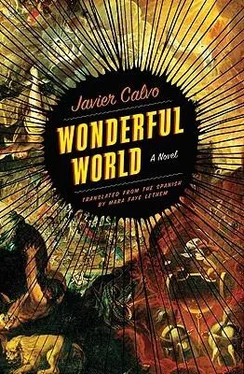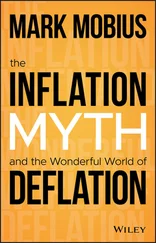“They're Alcoholics Anonymous posters,” says Manta after a moment. “This guy used to drink everything, even mouthwash, till somebody stuck him in one of those hospitals and they turned him around.”
Saudade nods with a neutral expression and returns to his reading. Half an hour passes. Manta reflects on the fact that his therapist often asks him to imagine his power to break said link as a symbolic equivalent to the superpowers of the Marvel superheroes he admires. The truth is that Manta isn't at all amused by his therapist bringing up his fondness for superhero comics. The truth is that he's unable to avoid perceiving a certain condescending and slightly mocking tone in the allusions his therapist makes to Marvel comics. Now Manta grabs a comic from the pile of superhero comics on the small table and tries to concentrate on reading. Saudade has started talking about the shame and disgust inherent in working with a fat piece of shit that reads comics.
“If you don't like soccer you can try tennis,” Saudade is saying as he flips through an Incredible Hulk comic. Manta can't help but notice that as Saudade turns the pages he is horribly wrinkling and folding the cover. “I know a place my boss used to play when I was a cop. It would definitely do you good to run a little. It's obvious you have to do something. You can't walk around looking like that. Chicks don't like it.” He closes the comic book and rolls it up to point it at Manta in a way that no comic book lover would ever roll up anything remotely resembling a comic book. “You think some chick wants to have a fat guy sweating all over her ass? Or wants to wait a half hour for some fat guy to find his cock under his beer belly? If I were you I'd sign up at a gym today. You can come to my gym if you want, but don't tell anyone that you know me. I don't want people to think that I have greasy friends like you. You'll see. Your wife'll quit screwing the neighbors when you lose forty-five pounds. There's nothing wrong with being big. The ladies like big guys, but not fat guys.” He shrugs his shoulders and carelessly tosses the comic onto the other comics piled up on the small table. “I go every week for a massage. In the same place my wife goes. The chick is crazy about me. The massage chick, not my wife.”
The reason why Aníbal Manta has never joined a gym, in spite of having considered the idea on several occasions when he was younger and having even gotten as far as the door of a gym, is his fear of being taunted and jeered at by all the slim and attractive gym clients. In therapeutic terms, the daily taunts and disdain seem to weigh on him much more than his potbelly. The piano in an apartment nearby is playing a melody that is powerfully reminiscent of the music in those scenes in horror films when something terrible is about to happen. Manta wipes the sweat from his forehead with a handkerchief. He would like to find some nonviolent, and therefore not therapeutically negative, way to tell Saudade to shut his fucking mouth for once and fucking all.
“Like this guy,” Saudade is saying, as he points to a character in an Italian Fantastic Four issue. “Why the fuck is he blue? What a load of crap. Have you ever seen a blue guy walking down the street? And this other guy.” He snorts and points at another character in a different panel. “This guy is made of bricks. And he's wearing underwear. Hey.” He examines the panel carefully and lets out a chuckle. “This brick guy looks like you. Did you see?”
Aníbal Manta is well aware, as is anyone in his line of work, that the only really effective forms of personal attack are not heralded by any type of previous warning or maneuver that can give any sort of clue about the attacker's intentions. Which is why the sequence of events that happens next in the living room full of Alcoholics Anonymous posters in Raymond Panakian's apartment in downtown Rome is the following: 1. Aníbal Manta gets up from his armchair and leans over the small table covered with comic books; 2. Aníbal Manta punches Saudade, breaking his nose; 3. Saudade stares at Manta with that expression of perplexity typical of someone who has just had their nose broken so fast that they had no time to do anything; and 4. A stream of blood comes out of Saudade's broken nose. They are both still there, standing in front of each other, Manta stroking his knuckles and Saudade looking at his powder blue and white sweat suit soaked in blood, when the door of the apartment opens and Raymond Panakian appears in the threshold. With his glasses and his turtleneck sweater. With his angular face that looks like a chess player from the Eastern Bloc who's just fled his country to take refuge in the capitalist world.
Panakian stares at the two strangers that are respectively bleeding and stroking their hand in his living room. The two strangers stare at him. The two bags of groceries that Panakian is carrying fall to the floor. The sound of breaking eggs is heard. Manta and Saudade take out their pistols at exactly the same time and point them at him. Panakian raises his hands.
CHAPTER 15. Venus with Mirror
Hannah Linus's commercial gallery is located on an anonymous street uptown, stuck between office blocks, bank headquarters, and corporate buildings. Hannah Linus couldn't care less about the contemporary role of artists and galleries as inner-city colonists and rejuvenators. Just as she couldn't care less about any other fads and trends in the art world. In fact, she is rather proud of the profits that not ever paying attention to trends has yielded her. As she sees it, it is one of those liberating acts that have allowed her to assume control of her life and gradually become more the person that she knows she wants to be. Like when she dumped her first and only boyfriend in high school. Or when, at ten years old, she decided to renounce her parents' religion and wrote a six-page letter to the Bishop of Uppsala detailing the reasons for her decision. Offering arguments against the existence of God and declaring her disappointment with all the hours that she had wasted up to that point in her parish.
Besides her contempt for life's distractions, Hannah Linus considers thoroughness to be another of her talents. In a normal morning of work, she devotes five hours to running the gallery with an hour-long break to do her training exercises. Her glassed-in office on the upper floor of the gallery was designed to optimize productivity. It has the appropriate amount of light. The temperature remains constant. There are no sources of distraction. All the calls are screened, including those of a personal nature. Or they would be if Hannah Linus received any personal calls. But the one feature of her modus operandi that Hannah Linus would single out as essential is the fact that no one interrupts her. All of the workings of Hannah Linus's gallery are designed around the employees not disrupting her except in unavoidable situations.
Which is why that morning, when she hears someone knocking on the glass door of her glassed-in office and she looks up from her computer, she only has to see Raquel's worried face to realize that something is going to interrupt the proper functioning of things. That something is going to violate her sacred precept of not being disrupted.
Hannah Linus signals for Raquel to enter. Raquel is her assistant, whom she holds in as low a professional regard as she does the rest of her local staff. Hannah Linus considers local employees to be unreliable, lacking in initiative and prone to distraction. If it weren't for the technical difficulties inherent in the process, she wouldn't mind importing all of her employees from Sweden.
Raquel enters her office and looks at Hannah Linus, terrified. Instilling respect through fear seems to be one of the few tactics that has worked with the gallery's local staff.
Читать дальше












